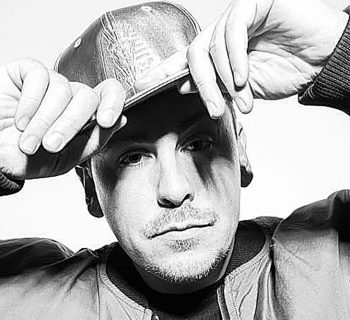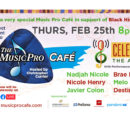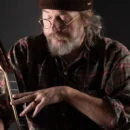CEO
beatBread
Years with Company: Since early 2020
Address: Los Angeles, CA
Web: beatbread.com
E-mail: hello@beatbread.com
Clients: Over 1,300 artists, labels, songwriters, and distributors
BACKGROUND
Recognizing that musicians don’t always need the services labels provide, Peter Sinclair saw an opportunity. With his company beatBread, artists and labels can access customizable loans, the terms of which are determined by proprietary software. Funds can be as little as $1,000 and go as high as $5 million. Advances are repaid from future streaming and airplay, leaving synch, touring, and merchandise profits untouched.
That Light Bulb Moment
Most of my career has been outside the music industry. I’ve worked in startups across a bunch of areas, from consumer finance to sports ticketing to online flowers. I got a call from Universal Music at a moment when I needed a corporate job. In 2015, global streaming was less than a billion dollars, but it was making radio less important. The idea that labels had a lock on distribution was going away. Their lock on radio promotion was going away. And a lot of managers and artists started scratching their heads about what they were getting from a label. For a lot of them, it was money. I observed that, if you could figure out a way to give artists and managers more choice of funding and uncouple it from services, they could put together the services that were the right fit for them.
The Application Process
Artists and labels go to our website and type in some contact information. We generate a quick estimate of different types of offers. Artists choose how long they want to share a portion of the revenue, whether they plan to release new music, and a couple other variables. And then they share their distribution reports. In about a day, we give a much more detailed offer based on further data.
Dare To Compare
We show financial offers from other distributors and finance companies with our deal comparison tool. Artists and labels maybe get an offer that looks great on its face, but it’s sometimes hard to understand. “How do I compare this one million dollar offer to this 1.2 million dollar offer?” It’s not always as simple as the dollar amount and the fee or royalty rate.
Options for Everyone
There’s no such thing as a best deal. Sometimes, there’s clearly a worst deal. But some artists or labels may say, “I’m willing to trade a bit in long-run cost for some more upfront money.” Others are happy to pay a 20 percent fee for 10 years, because that’s a manageable cost. Other people are saying, “I’m willing to bet the farm that my music performs above average,” and some people say, “I want some downside protection.”
Projecting Outcomes
We’re fundamentally a data science company. We show people that, “In the bottom 20 percent of likely scenarios given your release plan, this is what your revenue would be.” “In this deal, you’re going to be in financial trouble unless you have a bunch of hits.” “In this other deal, you may get a little less upfront money, but even if your music doesn’t take off you’re going to be fine.” In some cases, people choose funding not from us or even from a partner of ours. That’s fine.
The Future’s So Bright
It’s never been a better time to be an artist. A lot of people argue with this, but the numbers are overwhelmingly in favor of this idea. Before streaming happened, there were less than 5,000 artists a year who could make more than $50,000 on their recorded music. Now there are over 50,000. A lot of stats get thrown out about how few artists on Spotify make a certain amount. What those stats often forget is that Spotify is only 40 percent of the recorded music industry. It’s not the whole picture.
The other thing is we live in a world where it is much easier than ever to promote your music. If millions of people can get their music out, a smaller percentage is going to have a sizable fan base. But there are many more artists who can find a sizable niche audience than ever before.
All Around the World
We fund artists in the U.S., Europe, Canada, and Mexico. We have a growing business in Africa. We will fund artists in South America. Right now, we stay away from Southeast Asia, not for any reason other than we do everything based on data, and the data in those regions is a little spotty.
Feel the Algorithm
It’s not just one algorithm; it’s a series of algorithms. And we have looked at hundreds of thousands of artists across multiple years. We’ve looked at tens of millions of songs and compared streaming data for those artists and songs. There are lots of sub-variables. We pull all these things from various data services and also information that artists share with us. That’s when the core technology of what we do takes over. And it will price what existing music may do, but also make predictions about new releases.
Data-Driven Offers
We are very flexible, but we never negotiate. There are hundreds of choices that we present every time. We don’t say, “Here’s one offer. Here’s two offers.” We say, “Here’s a bunch of structures. You can pick from funding partner and distributor one, funding partner and distributor two, or funding partner and label three. But they’re three-year deals with two new albums. If you want more money, you have to pick a different structure.”
And the reason for that goes back to everything being data-driven. It’s possible to look at an artist and say, “I believe in this artist and, even though the data says X, we’re going to pay 2X.” No one at my company is capable of that. We’re just about the facts and, for a lot of artists and labels, that’s great because we’ll give you our best offer from the jump.
Success Stories
Too Lost is the fastest growing independent distributor in the world. Their growth would not have been possible without leveraging our capital. They’ve brought us artists they were interested in signing and we helped sign them. MAD Solutions is a record label focused on African artists. We’ve done the same with them. We’ve given them seven figures to fund their operations and sign new artists. They are starting to make a dent in the Nigerian music market.
Pesky Misconceptions
One [misconception] is that we only do short-term financing. Our average deal is over five years long. There are some other players we get compared to who do six-month and one-year deals. That’s not what we do.
The second is that we’re only there for small artists. I am proud of the fact we have a system that is able to efficiently give $1,000 or $10,000. But we have done hundreds of deals for mid-six figures, and many deals for over a million dollars.
The third is we just fund artists. We fund independent labels. Independent labels are doing the work of identifying, signing, promoting, and developing artists. And major labels don’t have any huge advantages over independent labels other than a checkbook. We’re here to close that gap.












